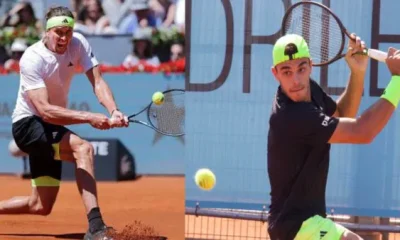Sport
WADA speaks on the Jannik Sinner case, “The conclusion is incorrect
The WADA speaks again on the Jannik Sinner issue and the Clostebol contamination that the world’s top athlete experienced in March 2024. Following an examination, it was revealed that there was cross-contamination from his physiotherapist, who used Clostebol cream to treat hand wounds.
Sinner’s contamination level was one-millionth of a gramme per litre, and the ITIA determined that there was no blame or neglect on his part. However, the World Anti-Doping Agency chose to appeal the initial verdict.

WADA unconvinced by “no fault” ruling
The appeal hearing will be held behind closed doors on April 16 and 17. Regarding the matter, WADA spokesperson James Fitzgerald reiterated that they believe a sanction of one to two years should be applied to the Italian player. “We believe that the conclusion of no fault or negligence is incorrect under the current rules, and we are requesting a suspension period of between one and two years.”
“WADA is not seeking to annul any results other than those already imposed in the first instance,” he added.
Fitzgerald, speaking to the Italian newspaper La Stampa, noted that the World Anti-Doping Code is constantly reviewed: “It has been the athletes themselves who have pushed for harsher penalties for offenders, resulting in the suspension period (for non-specified substances) increasing from two to four years.”
One of the key topics regarding this high-profile case is how low-dose contaminations are handled and whether there could be a rule change. “The issue of possible contamination is real, and WADA is addressing it.”
“Over the years, the minimum reporting thresholds for various substances have been adjusted to ensure fairness for athletes who unintentionally ingest a banned substance, as well as protection against those who seek to cheat. I can confirm that the rules regarding contamination are being examined as part of the ongoing review of the World Anti-Doping Code.”
Some claim that tiny doses could be misconstrued and used to mask other substances.
“It is well known that some substances can be taken to conceal the ingestion of others. Therefore, it is crucial that such masking agents remain on the list of prohibited substances and methods.”
“Without this principle, there would be no fight against doping, and cheaters would prevail. If an athlete who tests positive for a banned substance were not required to explain its origin or how it entered their system, it would be too easy for a cheater to evade significant sanctions.”












